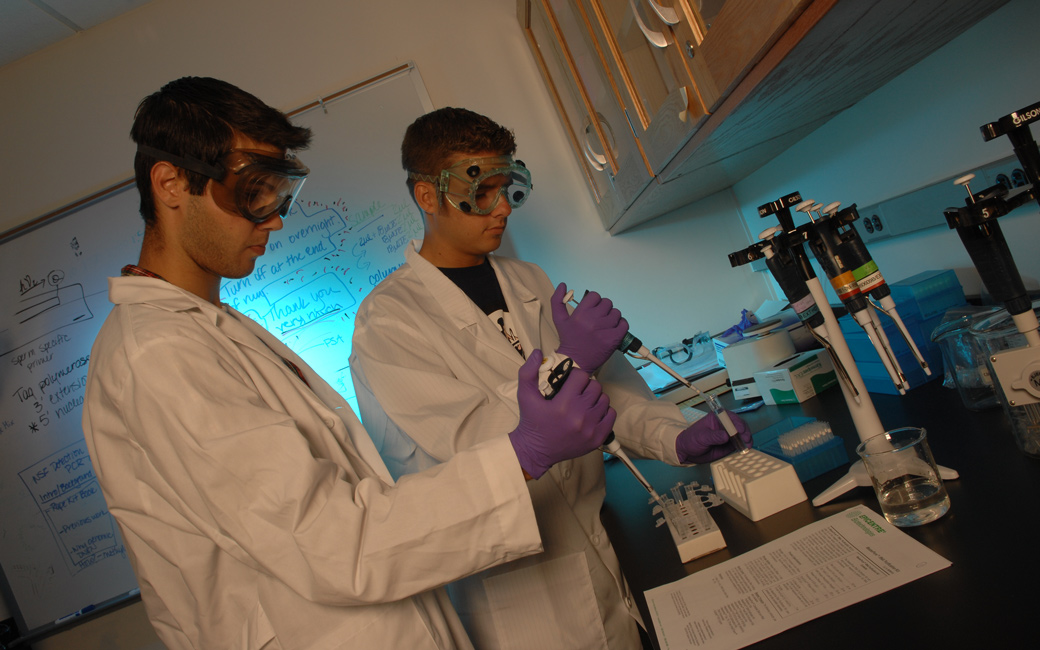
TU Human Remains Identification Laboratory
This laboratory supports student learning and enables high quality student and faculty research and community collaboration.
Find Out MoreWhat does it take to crack a criminal case? More often than not, it’s forensic evidence gained through meticulous testing done in the lab.

Mission Statement: The mission of the Forensic Chemistry Program is to provide students with a comprehensive and in-depth study of major areas of forensic science that will allow them to compete for positions in forensic science or other natural science at the entry level and/or to prepare them for education at the graduate level.
The goal of the Towson University Forensic Chemistry Program is to prepare students for positions as working scientists in business, industry and government careers and/or to prepare them for an advanced degree program. The program combines social science, chemistry, biology, mathematics and specialized forensic science coursework to provide students with scientific training in major areas of forensic science. The program is based on an application-focused curriculum that provides students development of laboratory skills.
The Forensic Chemistry Program is based on major learning goals, including mastery of course content, laboratory knowledge and skill development, data interpretation, written and oral communication skills and information technology with the following learning objectives.
The major in forensic chemistry at Towson University prepares you to fulfill the growing demand for graduates with the knowledge and skills to provide critical information to the criminal justice community. The program also opens doors to careers working in quality assurance and genomics laboratories, industrial hygiene, environmental science, or to pursue law, medicine, dentistry, pharmacy, or graduate study.
TU forensic chemistry alumni are employed as DNA analysts, crime scene investigators, researchers and professors in the public and private sectors. Some employers include: Baltimore City and Baltimore County Police Departments, Maryland State Police Department, Montgomery County Police Department crime laboratories, Bode Cellmark Laboratories, Quicksilver Analytics, U.S. Army Medical Research Institute and NIH.
Our alumni attend FEPAC-accredited master’s programs at Arcadia University, Boston University School of Medicine, George Washington University, John Jay College of Criminal Justice, Sam Houston State University, Towson University and Virginia Commonwealth University.
Three tracks provide options so you can specialize in preparation for the professional work force or for graduate programs.
You can view degree requirements and course descriptions and a four-year degree plan of study for the major in forensic chemistry in the Undergraduate Catalog.
Because forensic science is part of the criminal justice system, personal honesty, integrity, and scientific objectivity are paramount. Those seeking careers in this field should be aware that background checks similar to those required for law enforcement officers are likely to be a condition of employment. The following may be conducted and/or reviewed before an employment or internship offer is made and may remain as ongoing conditions of employment (this list is not all inclusive): Drug Tests, History of Drug Use, Criminal History, Personal Associations, Driving Record, Past Work Performance, Credit History, Medical or Physical Examination. Reference: NIJ Report NCJ 203099
Forensic Chemistry Program Post 2024
Forensic Chemistry Research & Internship Data